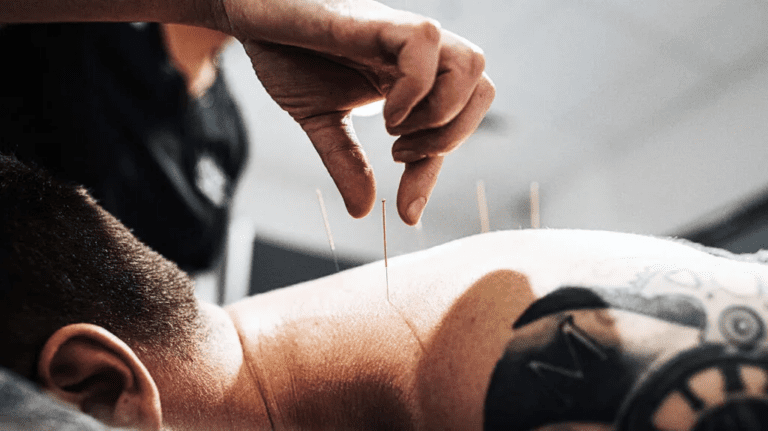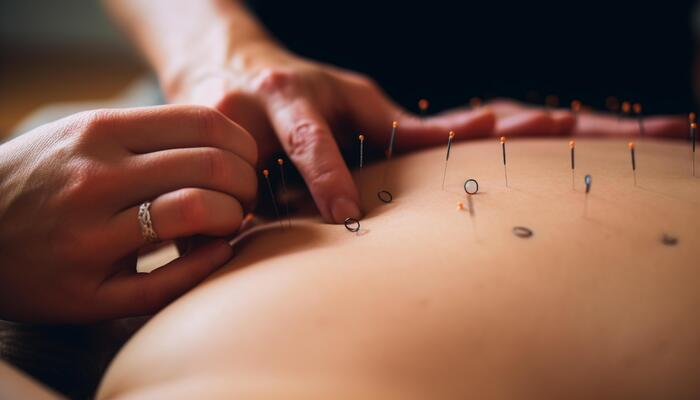
Did you know that more than 14 million Americans have tried acupuncture as it gained popularity? This traditional healing art is rooted in Chinese medicine, which has been practiced for thousands of years. It works on the principle that certain points on the body lie along channels called meridians through which a form of energy called Qi flows. By inserting very fine needles into these points, practitioners seek to bring back balance within the energy system, thereby facilitating healing processes.
What is acupuncture, and what are its historical roots?
Acupuncture is an ancient Chinese medical practice that involves inserting thin needles into specific body points to balance energy flow (Qi). It dates back over 2,500 years, originating in China, and has been used for pain relief and overall wellness. This practice is based on traditional Chinese medicine principles.
Within this context, Acupuncture then seeks to restore health by needling specific acupoints situated along these meridians so as to regulate Yin-Yang balance, promote smooth flow of Qi, and clear any blockages or stagnation. Thus bringing about overall well-being. It is believed that through such an approach, the body’s own healing abilities are stimulated towards dealing with diverse physical and emotional conditions.
How does acupuncture influence the body’s energy flow?
Acupuncture influences the body’s energy flow by stimulating specific points along meridians, pathways that channel Qi (vital energy). This stimulation helps unblock Qi, restoring balance and promoting healing. The practice is thought to enhance the body’s natural healing processes, reducing pain and improving well-being.
In traditional Chinese medicine, it is believed that the body has channels of energy flow known as meridians which connect different organs and tissues. They believe that illnesses arise when the flow is either blocked or out of balance. It is believed that stimulation of acupuncture points helps to release blockages and allows the free flow of energy thereby correcting imbalances. Some modern theories suggest that acupuncture may stimulate nerves, muscles, and connective tissues improving blood circulation and stimulating endorphins in the body.
What conditions can acupuncture effectively treat?
Acupuncture can effectively treat various conditions, such as chronic pain (e.g., back pain, headaches), anxiety, insomnia, and digestive issues. It can also help manage symptoms of arthritis, migraines, and stress-related disorders, offering a holistic approach to health by addressing both physical and emotional well-being.
Acupuncture is not just for pain management but covers a broad spectrum of health issues. According to research results, it can reduce inflammation in the body, boost immunity, and alleviate symptoms associated with anxiety and depression among others. People who have undergone this therapy often report better sleep patterns improved digestive system reduced stress levels and an overall sense of well-being. Quite often it is used as complementary care in addition to conventional therapies for various conditions.

How does an acupuncture session typically start?
An acupuncture session typically starts with a consultation to assess health concerns. The practitioner then inserts thin, sterile needles into specific points on the body, which are left in place for 20-30 minutes. The process is usually painless and aims to promote relaxation and energy balance.
The acupuncturist first does a comprehensive examination where he/she takes medical history information from patients about their past treatments and current signs/symptoms. The doctor uses a hair-thin needle on a particular pressure point identified through such a process during treatment sessions like this one. Often there are slight tingling sensations experienced by patients at times when needles are inserted into their body parts during treatment sessions like these ones too. Sometimes needles are adjusted accordingly by the acupuncturist to increase their therapeutic effect.
What scientific evidence supports acupuncture’s effectiveness?
Scientific studies have shown acupuncture can effectively treat chronic pain, such as osteoarthritis, migraines, and postoperative pain. Research suggests that acupuncture may release endorphins and influence brain activity, providing pain relief and enhancing mood.
A number of studies show that needle therapy might shape central nervous system responses by increasing pain perception and stimulating neurochemical release in certain regions of the brain. Endorphins -the body’s natural painkillers- appear to play a significant role too. On top of that, there have been some functional MRI studies showing brain activity changes associated with both pain processing and mood regulation hence suggesting its use for chronic pain syndromes such as fibromyalgia or mental illnesses like depression. However, more research is needed for a complete understanding of how it works.
Are there any risks or side effects associated with acupuncture?
Acupuncture is generally safe when performed by a trained practitioner. However, potential side effects include minor bleeding, bruising, or soreness at needle sites. Serious complications are rare but can occur if non-sterile needles are used. Ensuring treatment from a certified acupuncturist minimizes risks.
Minimal side effects like little aching or mild bruising are experienced by most people which get resolved quickly. To reduce infection risks one should go for an accredited acupuncturist who uses sterilized disposable needles. People with bleeding disorders or those using anticoagulants need to talk to their medical practitioner before they can have acupuncture treatment.

What are the immediate effects of acupuncture on the body?
The immediate effects of acupuncture on the body include relaxation and mild discomfort or tingling at the needle sites. Some feel energized, while others become calm or even slightly sleepy.
Acupuncture often induces a state of relaxation as the body’s natural response to the treatment begins. The insertion of needles can create a tingling sensation, which indicates the activation of nerve pathways and energy flow. Some individuals report feeling an immediate sense of calmness or a boost of energy, while others may feel slightly sleepy as their body adjusts to the therapy.
Who should not have acupuncture?
Pregnant women, people with bleeding disorders, or those on blood-thinning medications. Individuals with pacemakers should avoid electro-acupuncture. Always consult a healthcare provider before starting treatment.
It is essential to consult a healthcare provider to ensure acupuncture is appropriate for your specific health conditions and to receive treatment from a licensed practitioner.
Wrapping Up!
From traditional Chinese medicine and modern science views, i.e., relieving pain, improved mood swings, and better sleep, among other things. It can be used as an additional treatment with conventional medicine. Look into the whole-person benefits of acupuncture and find a licensed acupuncturist or medical professional who can give you individualized recommendations. Start on your way to feeling better by getting some expert opinions about what might work for you in terms of wellness along with trying out different things such as acupuncture.
